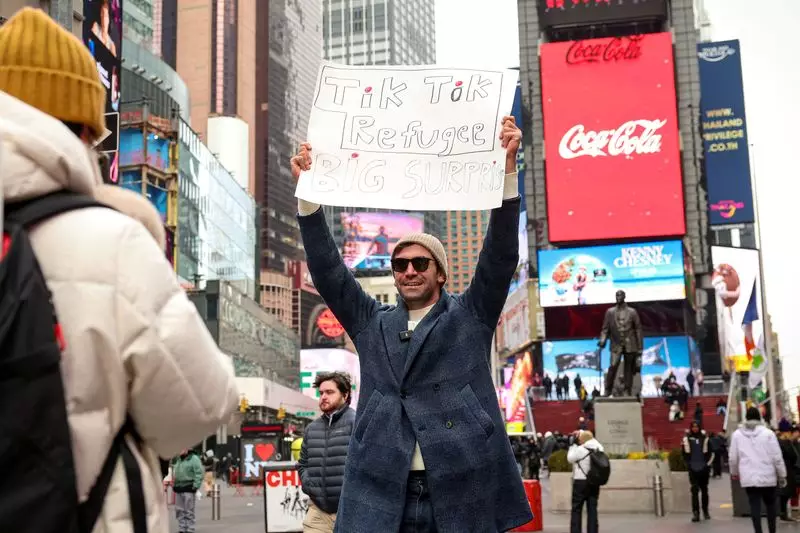In recent days, TikTok has become a flashpoint in the continuing complexities of U.S.-China relations, with the potential for a federal ban causing widespread concern across the American populace. Nearly half of all Americans currently engage with the app, which has not only transformed online culture but also emerged as a vital resource for countless small businesses aiming to connect with audiences. The threat of the ban has stirred a cocktail of anxiety and urgency among TikTok’s user base and business partners alike, with TikTok announcing that operations could cease in the U.S. if meaningful dialogue with President Biden’s administration doesn’t materialize.
The stakes are clearly delineated: TikTok’s parent company, ByteDance, faces demands to sever ties with its Chinese roots or cease operations within the country. This ultimatum, a result of national security concerns, is unprecedented—no other major social media platform has faced a shutdown of this magnitude in the U.S. since the advent of the internet age. Considering TikTok’s reach, boasting around 170 million U.S. users and projections of $20 billion in revenue by 2025, the implications of its potential disappearance from the digital landscape are profound.
The unfolding legal proceedings surrounding TikTok are equally noteworthy. A recent unanimous decision by the Supreme Court has upheld the administration’s ability to enforce a ban, further sealing TikTok’s fate. The Biden administration’s silence in the face of this crisis has raised eyebrows, particularly as major tech players like Apple and Google scramble for clarity about their roles in the unfolding drama. The lack of assurances from the federal government places these companies in a precarious situation: they could be exposed to legal risks if they continue to support TikTok.
Interestingly, the political landscape appears to shift as power transitions with the new incoming administration. President Trump has hinted at a potential reversal of the ban, suggesting a more lenient approach that may include a temporary suspension of the enforcement. This proposal raises questions about the continuity of policy amidst changing leadership, igniting a fierce discussion about the intersection of technology, security, and governance.
For TikTok’s users, the prospect of losing the platform has spurred a rush to alternatives, with some turning to lesser-known apps like RedNote. Users are not merely seeking a replacement; they are also faced with the reality of disrupted connections and the potential loss of the vibrant networks they have cultivated. This exodus could significantly diminish TikTok’s user engagement, paving the way for rivals like Meta and Snap to capitalize on the disquiet.
Indeed, the stock market has reacted accordingly, with shares of competing social media platforms seeing a notable rise. Investors seem to be preparing themselves for an influx of users and advertising dollars should TikTok disappear from the scene. This reactive market behavior showcases how intertwined social media platforms have become in the modern economy, where the fate of one can alter the fortunes of many.
As discussions evolve about possible solutions or alternatives for TikTok’s operation in the U.S., the notion of acquisition has entered the conversation. Figures like Elon Musk and former sports executives are reportedly interested in the platform, which has been valued as high as $50 billion. However, the speculation about potential ownership transfer, particularly to an individual with ties to the outgoing administration, raises ethical questions around influence and ownership in the tech sector.
Moreover, with more than 7,000 U.S. employees under ByteDance’s banner, the uncertainty surrounding TikTok’s operations not only impacts the company but also jeopardizes the livelihoods of countless workers. The cascading effects of such a ban could unsettle not just the platform’s community but also the broader economic landscape, creating ripples far beyond the app itself.
The threat of a TikTok ban stands as a significant moment in the convergence of technology, regulation, and international relations. The responses from political leaders, corporate giants, and users alike highlight the intricate dynamics at play in today’s digital age. As the U.S. grapples with the implications of its national security decisions, users and stakeholders will be left to navigate an uncertain landscape that could reshape the fabric of social media engagement. The outcome of this confrontation will undoubtedly have long-lasting repercussions on how we conceive of digital platforms and their governance in the context of global politics.

